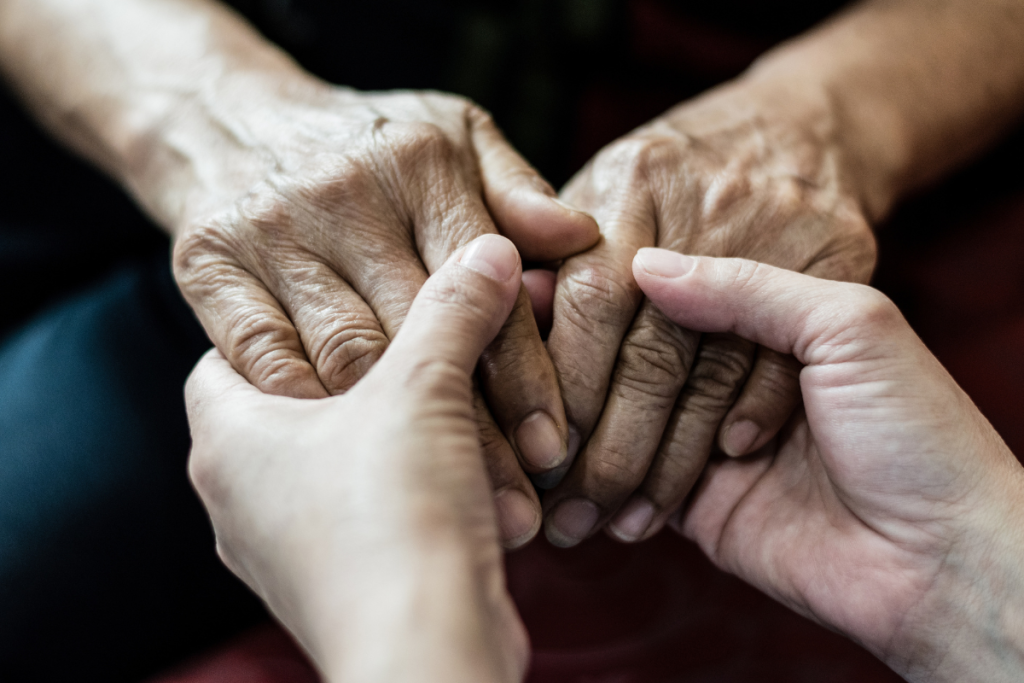The diagnosis, treatment, or progression of a disease, such as prostate cancer, in a loved one always requires adaptation from both the caregiver and the care recipient. If you find yourself caring for someone without choosing to do so, know that resources are available to support you. If you are a family caregiver, this article will help you understand the journey you are embarking on and how to equip yourself to avoid burnout.
But first, how do you recognize yourself as a “family caregiver”? A family caregiver refers to any person who provides support to one or more members of their circle who have a temporary or permanent disability of a physical, psychological, psychosocial, or other nature, regardless of age or living environment, with whom they share an affective or family link. If this is your situation, keep reading.
Face the facts
Prostate cancer has entered your loved one’s and your life? As with all cancers, access to care and information is essential. In other words, information is the first remedy! If you are in a couple, the more you are informed about prostate cancer, treatment options, and side effects, the easier it will be for you to understand your partner’s treatment choice, its impact on you, and the bumpy road that may lie ahead for both of you during this journey.
Talk to your loved one
A major problem with several of the side effects of prostate cancer treatment is that they can be embarrassing or difficult to talk about for the man who is suffering from them, such as urinary and sexual problems. For these reasons, it is important to keep communication channels open with your partner and let them know that they can confide in you without judgment.
This same idea is true for non-sex-related side effects. Feelings of depression, anxiety, and social isolation, as well as other physical symptoms, can be as difficult to discuss as intimacy problems and can cause just as much damage to a man’s physical, mental, and emotional well-being. Maintaining a warm and safe communication space and encouraging your partner to confide in you will help you better understand what they need.
Get help, don’t stay alone
As a family caregiver, you give yourself tirelessly and help your loved one to improve their quality of life. Accepting help is showing empathy towards yourself, preserving your balance. This requires reconnecting with oneself and listening to oneself. It also means recognizing and accepting one’s limits. Quite a challenge when one is entirely focused on one’s loved one. Don’t wait to ask for help. From the start of the journey, it is important to know what resources are available to you. Even if you don’t need it immediately, knowing that help is available will reassure you.
Try not to feel guilty
As a family caregiver, it is normal to feel guilty at times. The feeling usually arises when there is a discrepancy between our values and our behavior. It can occur following an action, a word, or even the omission of an action. This feeling alerts us and indicates that we need to find a balance between our needs and obligations. To transform your feeling of guilt, you need to change your perspective on the situation. For example, you can say no, take time for yourself, or express your emotions, delegate some tasks, or consult a support worker.
Rest and enjoy daily life Thinking of oneself means reserving time every day to recharge one’s batteries by doing what one likes, what one enjoys. A realistic goal is more likely to materialize than bold grand projects! For example, a 20-minute nap, gardening, reading, a 10-minute walk, or a musical break. The main thing is that the activities chosen correspond to your desires.
Take the time to visit each of our pages on this website, as well as our YouTube channel, in order to get familiar with the disease, our expert lectures and webinars, our section on available resources, the support that is offered to you, our events and ways to get involved in advancing the cause.
You have questions or concerns? Don’t hesitate. You can chat with us or contact us at 1-855-899-2873 to discuss with one of our nurses specialized in uro-oncology. They are there to listen, support and answer your questions, as well as those of your family or loved ones. It’s simple and free, like all of our other services.
Webinar to review
Caregiver: Surrounding Yourself To Help
Written by PROCURE. © All rights reserved – 2023



 ADDITIONAL RESOURCES
ADDITIONAL RESOURCES

